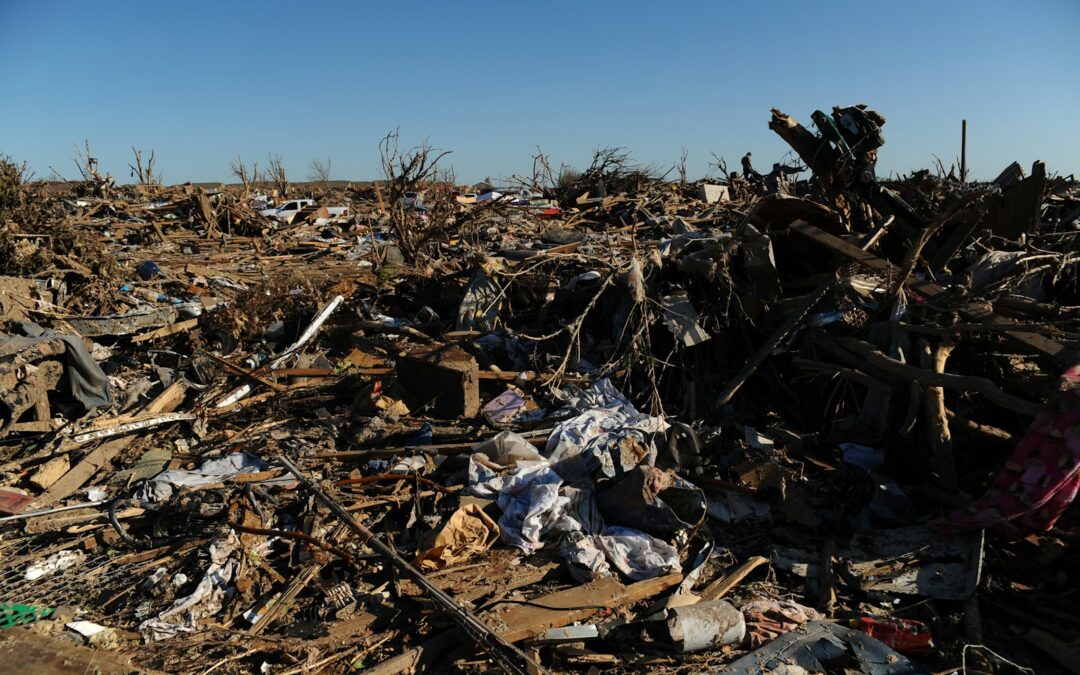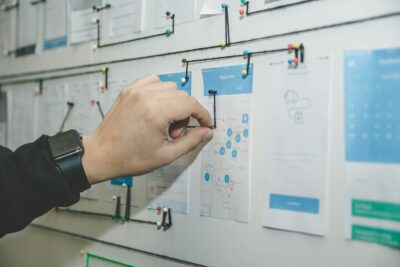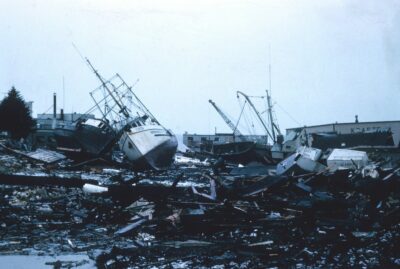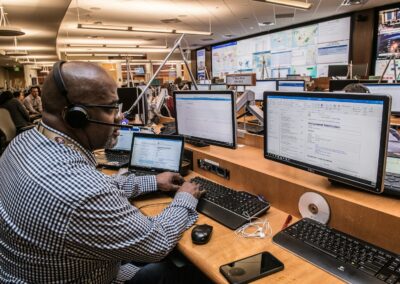Public Education and Awareness for Improved Community Response
Importance of Disaster Preparedness in Business Continuity
Disaster preparedness is crucial for maintaining business continuity and ensuring resilience in the face of unforeseen events. In regions like Saudi Arabia and the UAE, where rapid technological advancements are coupled with significant economic growth, the need for robust disaster preparedness strategies is paramount. Businesses must be proactive in educating their employees and the broader community about disaster preparedness and recovery to minimize disruptions and enhance response capabilities.
Public education and awareness campaigns are essential components of disaster preparedness. By informing the community about potential risks and effective response strategies, businesses can foster a culture of resilience. In Riyadh, for example, companies are collaborating with government agencies to conduct workshops and seminars on disaster preparedness, emphasizing the importance of being well-prepared. These initiatives not only safeguard business operations but also contribute to the overall resilience of the community.
The role of modern technology in disaster preparedness cannot be overstated. Artificial Intelligence (AI) and blockchain technology are transforming how businesses approach disaster management. AI-driven predictive analytics can identify potential threats and suggest mitigation strategies, while blockchain ensures the security and transparency of critical data during recovery efforts. In Dubai, innovative tech solutions are being integrated into disaster preparedness plans, providing businesses with the tools needed to navigate crises effectively.
Leveraging Technology for Effective Disaster Management
Artificial Intelligence is a game-changer in the realm of disaster preparedness. By analyzing large datasets, AI can predict natural disasters, cyberattacks, and other emergencies, allowing businesses to take preemptive measures. In Saudi Arabia, AI-powered systems are being deployed to monitor infrastructure and detect vulnerabilities, ensuring that businesses can respond swiftly to any threats. These AI systems not only enhance disaster preparedness but also optimize resource allocation during recovery efforts.
Blockchain technology offers unparalleled security and reliability in disaster management. Its decentralized nature ensures that data remains intact and accessible even during disruptions. For businesses in Dubai, integrating blockchain into disaster recovery plans means that critical information is protected from tampering and loss. This technology is particularly useful for maintaining the integrity of financial records, supply chain data, and communication logs during emergencies.
The metaverse presents a novel approach to disaster preparedness. By creating virtual simulations of disaster scenarios, businesses can train employees and test response strategies in a safe environment. These simulations enhance readiness and ensure that teams are well-prepared to handle real-life crises. In the UAE, companies are exploring metaverse-based training programs to improve their disaster response capabilities, demonstrating the innovative potential of this technology in enhancing business resilience.
Leadership and Management in Crisis Situations
Effective leadership is critical during times of crisis. Leaders in Saudi Arabia and the UAE understand the importance of being well-prepared for disasters and are investing in comprehensive training programs for their teams. By fostering a culture of preparedness, executives can ensure that their organizations are ready to face any challenges. In Riyadh, leadership training programs emphasize the development of crisis management skills, enabling leaders to make informed decisions under pressure.
Project management plays a vital role in disaster preparedness and recovery. From planning and resource allocation to execution and monitoring, project managers must navigate complex challenges to implement effective disaster preparedness strategies. In Dubai, project management practices are evolving to incorporate advanced technologies and innovative solutions, ensuring that businesses can recover quickly from disruptions. These practices are essential for maintaining business continuity and safeguarding assets during emergencies.
Training and development are key components of disaster preparedness. Employees must be equipped with the knowledge and skills needed to respond effectively to disasters. This includes understanding emergency protocols, using AI-driven tools, and navigating blockchain-based platforms. In the UAE, businesses are investing in extensive training programs to ensure their workforce is prepared for any eventuality. These programs not only enhance individual capabilities but also strengthen the overall resilience of the organization.
Case Studies: Successful Disaster Preparedness Initiatives
Several case studies highlight the successful implementation of disaster preparedness initiatives in Saudi Arabia and the UAE. One notable example is a major telecommunications company in Riyadh that integrated AI and blockchain to enhance its disaster response capabilities. This integration resulted in a significant reduction in downtime during network failures, ensuring uninterrupted service for customers and maintaining business continuity.
In Dubai, a leading logistics firm implemented metaverse-based training simulations to prepare its employees for various disaster scenarios. These simulations provided valuable insights into potential vulnerabilities and allowed the company to refine its response strategies. As a result, the firm experienced a 30% improvement in its disaster response time, demonstrating the effectiveness of innovative training methods.
Another example is a healthcare provider in the UAE that adopted comprehensive disaster preparedness measures, including public education campaigns and advanced technology solutions. By leveraging AI for predictive analytics and blockchain for secure data management, the provider ensured that critical medical services remained operational during emergencies. This approach not only improved patient outcomes but also underscored the importance of robust disaster preparedness in the healthcare sector.
Future Trends and Conclusion
The future of disaster preparedness in business lies in the continuous advancement of technology and the proactive involvement of leadership. As AI, blockchain, and the metaverse continue to evolve, their applications in disaster management will become even more sophisticated. In Saudi Arabia and the UAE, ongoing investments in these technologies will drive further innovation, ensuring that businesses remain resilient in the face of unforeseen challenges.
In conclusion, disaster preparedness is essential for maintaining business continuity and ensuring resilience. Public education and awareness campaigns, coupled with advanced technologies, can significantly enhance community response capabilities. Effective leadership, strategic project management, and comprehensive training are crucial for successful implementation. As technology continues to advance, businesses in Riyadh, Dubai, and beyond must embrace innovative solutions to safeguard their operations and contribute to the overall resilience of their communities.
—
#disasterpreparedness #businesscontinuity #communityresilience #RiyadhTech #DubaiInnovation #AIinDisasterManagement #blockchain #metaverse #projectmanagement #leadershipskills























